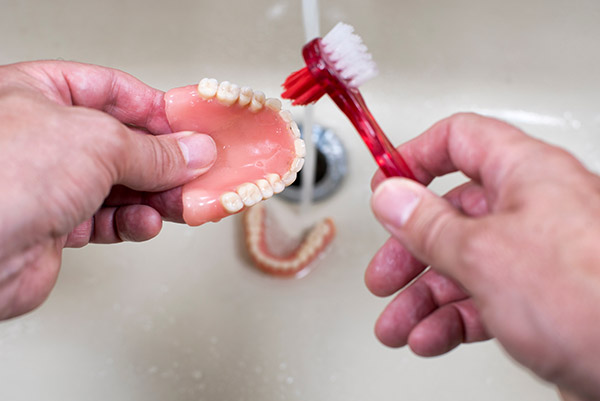When Should I Visit an Emergency Dentist?

Emergency dentists help patients who are in need of immediate dental treatment. Unlike many general and family dentists, dentists that offer emergency services are able to treat patients who need urgent care with little to no notice ahead of time. However, defining a dental emergency is not always easy, and it is best to understand when a visit to an emergency dentist might be necessary.
When to seek emergency dentistry
Emergency dentistry is for patients who need emergency dental care that does not pose a threat to their general health. There are times when more minor concerns may not need prompt treatment and when more severe concerns may require a trip to the emergency room. However, the more common reasons to visit an emergency dentist include severe toothache, painful gum complications or damaged teeth.
Severe toothache
There are many oral health concerns that may cause a toothache. For minor toothaches, the issue is often the result of a dental cavity or periodontal disease. If the pain is tolerable and there are no other concerning symptoms, then a visit to an emergency dentist can likely wait until the next day or two.
However, pain that is more severe or exists along with swollen gums and other concerns likely require a trip to the emergency dentist. This is because a severe toothache can be a sign of a dental abscess, severe periodontal disease or tooth damage caused by dental trauma.
Swollen gums
Swollen gums are often a sign of more severe periodontal disease. If the swelling is minor and there is not severe pain, then it may not need immediate treatment other than at-home care with gentle brushing, mouthwash and avoiding sugar. However, swollen gums may also be a sign of an oral infection. If swollen gums worsen or linger for an extended period of time, then it is best consider a visit to the emergency dentist for immediate treatment. Depending on the cause, they may provide antibiotic treatment.
Chips & cracks
Severe toothaches and swollen gums are two signs that indicate a visit to the emergency dentist is needed. However, emergency dentists also treat issues of dental trauma. After someone suffers a blow to the mouth, they may endure chipped or cracked teeth, which emergency dentists can promptly repair. Chips and cracks may also result from teeth grinding or biting down too hard on ice or hard foods as well.
Knocked-out teeth
Teeth may become knocked-out as a result of a blow to the face, which could occur during sports or an accident. If the patient acts quickly and preserves the tooth, the emergency dentist may be able to save the tooth. When experiencing a knocked-out tooth, be sure to call the emergency dentist right away and get there as soon as possible
Talk to an emergency dentist today
To learn more about what an emergency dentist does, reach out today. Additionally, we can discuss when it is necessary to get emergency dental care.
Request an appointment here: https://stonecanyondental.com or call Stone Canyon Dental at (972) 996-3191 for an appointment in our Sunnyvale office.
Check out what others are saying about our services on Yelp: Read our Yelp reviews.
Recent Posts
If you are new to the denture world, you may be confused when you think of toothbrushes and denture care. Most people have this misconception that since you have dentures, you no longer have to brush your teeth. This statement couldn’t be any more wrong. Brushing is just one important step in caring for your…
You have probably heard of Invisalign® teeth-straightening treatments. This process can be effective at changing the appearance of your teeth. If you are unhappy with how crooked your teeth look and how this affects your smile, talk to your dentist. You might be a good candidate for this treatment. There are some signs that indicate…
Denture care is an important part of denture maintenance. You depend on your dentures to perform day-to-day tasks, and it's not uncommon for them to need repair or replacement over time. The key to keeping your dentures in good shape is making sure that they are cared for properly. Denture care goes beyond just brushing…
Denture care is one of the most essential steps in preventing gum disease. Gum disease can lead to tooth loss and other health issues like heart disease, stroke, and diabetes. Dentures are a common and vital dentistry tool dentists use to repair tooth damage, fill cavities or even replace missing teeth. Dentures play a considerable…







